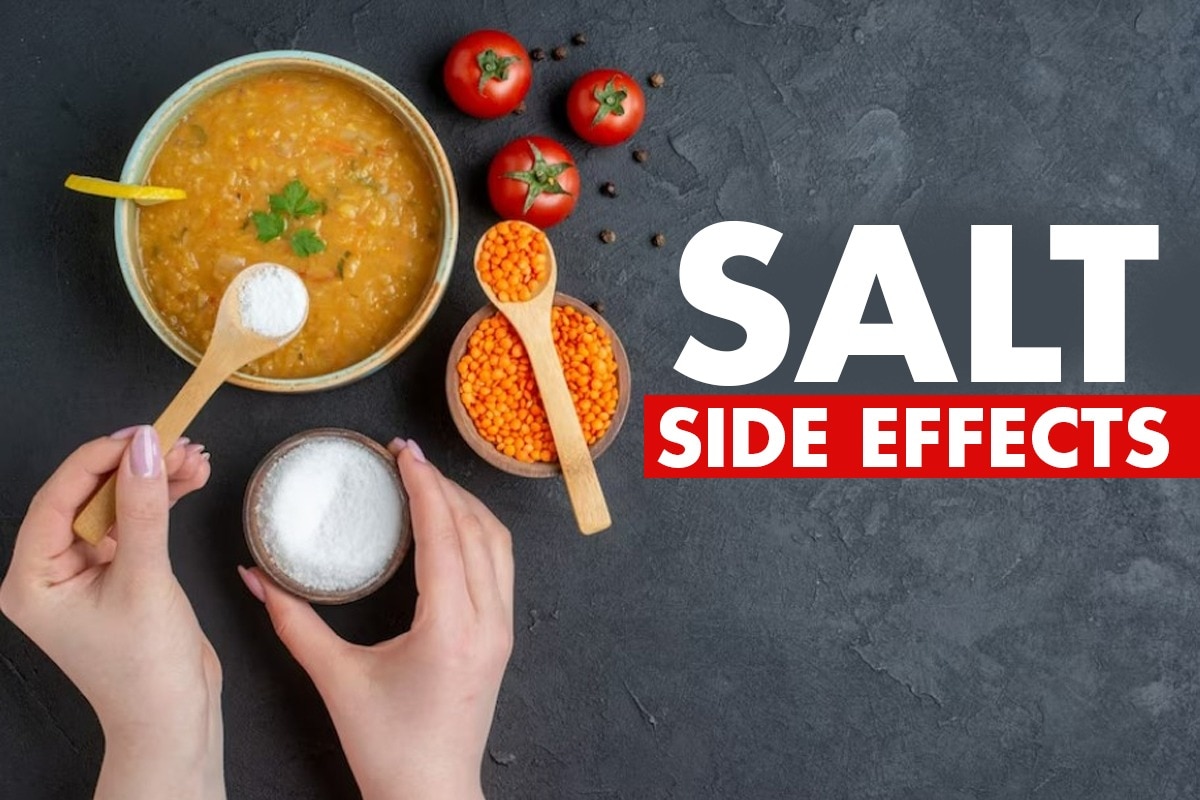How much salt is too much salt? It’s true that salt is the key flavor that makes our food delicious, but diets high in sodium can lead to long-term chronic disease.
Salt Side Effects: Aaj Sabji namak nhi dala (there is no salt in today’s food)? It is a common comment in households about the salt content of food being too much, too little or not at all. Salt is the most important seasoning in food. These little white cubes of sodium add flavor to every vegetable, every curry, and every one of your favorite foods. If it is missing, the taste becomes bland. But the question here is, how much salt is too much salt? Too much of everything is bad and so is too much salt. If consumed in excess, salt can have adverse health effects. Therefore, it is important to control our dietary salt intake or else it can silently damage our organs.
5 side effects of the high-salt diet
- Hypertension- A diet high in salt can lead to high blood pressure problems. When the kidneys can’t filter out excess fluid, your blood pressure may rise.
- Increases risk of heart– High sodium content puts the heart at risk of stroke due to increased blood pressure.
- swelling– If you are someone who eats a high-salt diet, then you may be feeling bloated or bloated due to water retention. The body tries to maintain the water to sodium ratio, and to maintain that, too much salt leads to excessive water retention. This can also affect the kidneys in the long run.
- Osteoporosis– Excess salt in food over a long period of time could lead to fluid buildup in body tissues and cells. This forces the body to excrete calcium, which causes bone degeneration and osteoporosis.
- Increased thirst and weight – This is because eating a lot of salt makes your body conserve water. According to a report from Healthline.com, high salt intake increases thirst. Your body uses excess fluid consumed to dilute excess sodium that it can’t excrete fast enough. However, your urine volume does not change, which means that this excess fluid stays in your body. Therefore, a sudden increase in sodium intake can cause you to gain some weight in liquid form.
$(document).ready(function(){
$(‘#commentbtn’).on(“click”,function(){
(function(d, s, id) {
var js, fjs = d.getElementsByTagName(s)[0];
if (d.getElementById(id)) return;
js = d.createElement(s); js.id = id;
js.src = “//connect.facebook.net/en_US/all.js#xfbml=1&appId=178196885542208”;
fjs.parentNode.insertBefore(js, fjs);
}(document, ‘script’, ‘facebook-jssdk’));
$(“.cmntbox”).toggle();
});
});
